Yes. When dealing with the VA throughout the appeals process, the evidence and arguments associated with the veteran’s case are submitted in written form. Once our team accepts a veteran’s case, the VA Regional Office sends us the entire copy of the disability claims file. This enables our team to formulate a case in support of obtaining veteran’s benefits by applying VA case law and regulations to the information found in the claims file. Upon reviewing the claims file, if our team determines there is insufficient medical evidence to support a claim for disability compensation benefits, we will advance the cost of an independent professional medical evaluation within reasonable distance of the veteran’s current address or location.
A “nexus” is a link between a veteran’s current, diagnosed disability and an in-service event, injury, or illness. In other words, the nexus is the causal connection between the traumatic events a veteran experienced during his or her service and the current disability the veteran is suffering from today. A veteran usually proves nexus by having a medical professional write a “nexus opinion” for his or her claim.
The effective date is the day a veteran can start receiving his or her disability benefits. The date varies with the type of benefit the veteran is applying for and the nature of his or her claim. In determining the date, the VA will first look at the date the last claim was received by the Regional Office. Second, the VA will look at the date the disability at issue first became revealed or openly symptomatic. The later of these two dates will most likely be the effective date for the service-connected disability award given to the veteran. The statute dealing with this is 38 U.S.C. § 5110(a). There is also a case that dealt with this issue, McGrath v. Gober, 14 Vet. App. 28 (2000).
Yes, veterans can receive both VA Disability Compensation benefits and Social Security benefits. It is important for veterans to know that receiving one does not guarantee they will receive the other. Veterans typically cannot receive both VA pensionand Social Security during the same time period.
No. This issue has been settled by a published General Counsel Opinion. Under 38 C.F.R. § 3.306(b), a claimant is not required to show his or her disease or injury increased in severity during service to meet the presumption of aggravation. Therefore, this requires the VA administration to rebut or defeat this presumption through clear and unambiguous evidence. For further information see VAOPGCPREC 3-2003.
The VA refers to any claim as a “TDIU” when two conditions are met. First, a veteran must either have one service-connected disability with a 60% or more disability rating or have two or more service-connected disabilities that, when combined, have a rating of 70% or more. Second, there must be medical evidence demonstrating why the veteran is unemployable. A veteran who satisfies these two conditions, shall be entitled to a 100% disability rating, even if he or she does not satisfy the 100% disability rating under the schedule. To see the full legal rule, see 38 C.F.R. §4.16(a). An extra-scheduler disability rating comes into play when a veteran has a condition that does not fit any rating code criteria and presents in ways that do not match any definition. The symptoms of these illnesses may be “above and beyond” the rating code for that disability, have life-altering consequences, and make it impossible for a veteran to work. In these instances, the VA considers the claim for an extra-schedular rating, which gives the veteran an additional percentage for that disability. Veterans can receive a 100% disability rating under either a TDIU or extra-schedular theory. See Bowling v. Principi, 15 Vet. App. 1, 5-9 (2001).
It depends. Veterans can typically work while receiving VA Disability Compensation. However, in most cases, to receive individual unemployability (TDIU) or a 100 percent rating for certain disabilities, a veteran cannot work full-time or exceed the annual income threshold, which is generally anything over the poverty line. It is important to note that no claims are the same and VA rules often feature exceptions and caveats that apply to these unique situations.
If a veteran’s current service-connected condition has worsened, he or she can file an increased rating claim using the basic VA claims form or submit a letter to his or her local Regional Office requesting a reevaluation of the claim. It is imperative that the veteran submit medical records demonstrating the condition has worsened since the VA granted the previous disability rating.
No. VA service-connected Disability Benefits are non-taxable and will not be considered as part of a veteran’s annual income by the IRS.
Yes. The VA has certain benefits for survivors and dependents of deceased veterans that were receiving disability compensation prior to death. A veteran’s spouse could qualify for Dependency Indemnity Compensation (DIC) benefits if: (1) the cause of the veteran’s death was due to a service-connected injury or disease; (2) the veteran’s death resulted from a nonservice-related injury or disease and the veteran was receiving, or was entitled to receive, VA Disability Compensation for a service-connected disability that was rated as totally disabling for at least 10 years immediately preceding death; (3) the veteran was receiving a total disability rating for at least five years following his or her release from active duty immediately preceding death, or, (4) the veteran was a former prisoner of war (POW) who died after September 30, 1999, and was receiving VA Disability Benefits for at least one year prior to their death.
